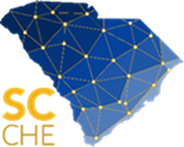|
The CEML TEAM wanted to say a big THANK YOU to all the amazing teachers who made our Summer Institute 2022 a success! We wish you all the best and look forward to continuing to learn and grow with you in the coming weeks and months! Today we thought about what it means to have "DIALOGUE" in mathematics. We continued to examine mathematical tasks from https://access.openupresources.org/curricula/, first exploring them as students. As we worked through the tasks we thought about the math literacy practices we were using, including connecting to prior knowledge, refining ideas, and learning from the current experience. The group also discussed some specific teaching practices we might use to support our students as they engage in math literacy practices, including: providing individual think time before discussions, providing students with sentence stems, and fishbowl discussions. Have a restful remainder of the summer! -R Robinson
0 Comments
We asked participants about their biggest takeaways from DAY 3 of our Summer Institute. Here's what they told us:
"Students should be given the space and opportunity to process their thinking (writing, reading, taking notes/annotating) before starting a task." "There is no right or wrong way to write math." "The biggest takeaway I have for today is the appreciation I have for this group community....It almost chokes me up a little... This group is so willing to help...their willingness to help me is staggering." "Specializing allows students to test new learning with numbers they're comfortable with." Today we thought about what it means to "WRITE" in mathematics. As we worked through the mathematical tasks we thought about the math literacy practices we were using, including thinking with and through symbols, annotating, and specializing. The group also discussed some specific teaching practices we might use to support our students as they engage in math literacy practices, including: writing for a particular audience, writing for a particular purpose, and writing to learn. We're looking forward to a great last day for our Summer Institute 2022! -R Robinson Today we thought about what it means to "READ" in mathematics.
We looked at some great mathematical tasks from https://access.openupresources.org/curricula/, first exploring them as students. As we worked through the tasks we thought about the math literacy practices we were using, including interpreting common representations and notation, maintaining equivalence, and leveraging form. The group also discussed some specific teaching practices we might use to support our students as they engage in math literacy practices, including: making connections (text-to-text, text-to-self, or text-to-world), unpacking vocabulary, modeling, providing sufficient time, and providing sufficient “space,” i.e. an open problem. We are blessed to have such an amazing group of reflective practitioners! Looking forward to more great conversations and learning tomorrow! -R Robinson What a great first day!
To get in the literacy mood, we first read the poem Stopping by Woods on a Snowy Evening. Led by Dr. Kane, participants unpacked the often tacit literacy practices used during sense making. Participants noted several things, including accessing prior knowledge, creating mental imagery, double reading, and reading aloud. Then participants contrasted poetry reading with reading a NCTM mathematics task. Participants described using literacy practices including rereading, looking for key words, and making personal connections. Throughout the day participants tackled more rich mathematical tasks, paying particular attention to the critical role literacy plays in sensemaking. For example, participants noted that different types of graphs required different types of sense making, leading Dr. Kane to describe them as different "genres" of graphs (i.e. bar graph, line graph, etc.) Participants consistently used their document cameras throughout the day (part of their welcome package they received in the mail), putting on their "student hats" to share work on mathematical tasks with one another. Participants discussed how they could see that their students will benefit from the use of the document camera in their classrooms, likely increasing student ownership and engagement. In the days ahead we will dive deeper into mathematical literacy, getting specific about what it is and how we support students to engage in the related literacy practices. -R Robinson |
AuthorsDr. Richard Robinson (mathematics) and Dr. Britnie Kane (literacy) explore ways to foreground math literacy in the K-12 classroom. Archives
March 2023
Categories |

This is a sponsored project through a grant from
the South Carolina Commission on Higher Education
under the auspices of the EIA Centers of Excellence Grant Program.
EMAIL: [email protected]
TWITTER: @k12mathliteracy
INSTAGRAM: k12mathliteracy
This work is licensed under a Creative Commons Attribution-NonCommercial-NoDerivatives 4.0 International License.
© 2022 Richard Robinson and CEML Team • The Citadel • Charleston, SC 29409 • [email protected]
the South Carolina Commission on Higher Education
under the auspices of the EIA Centers of Excellence Grant Program.
EMAIL: [email protected]
TWITTER: @k12mathliteracy
INSTAGRAM: k12mathliteracy
This work is licensed under a Creative Commons Attribution-NonCommercial-NoDerivatives 4.0 International License.
© 2022 Richard Robinson and CEML Team • The Citadel • Charleston, SC 29409 • [email protected]
 RSS Feed
RSS Feed